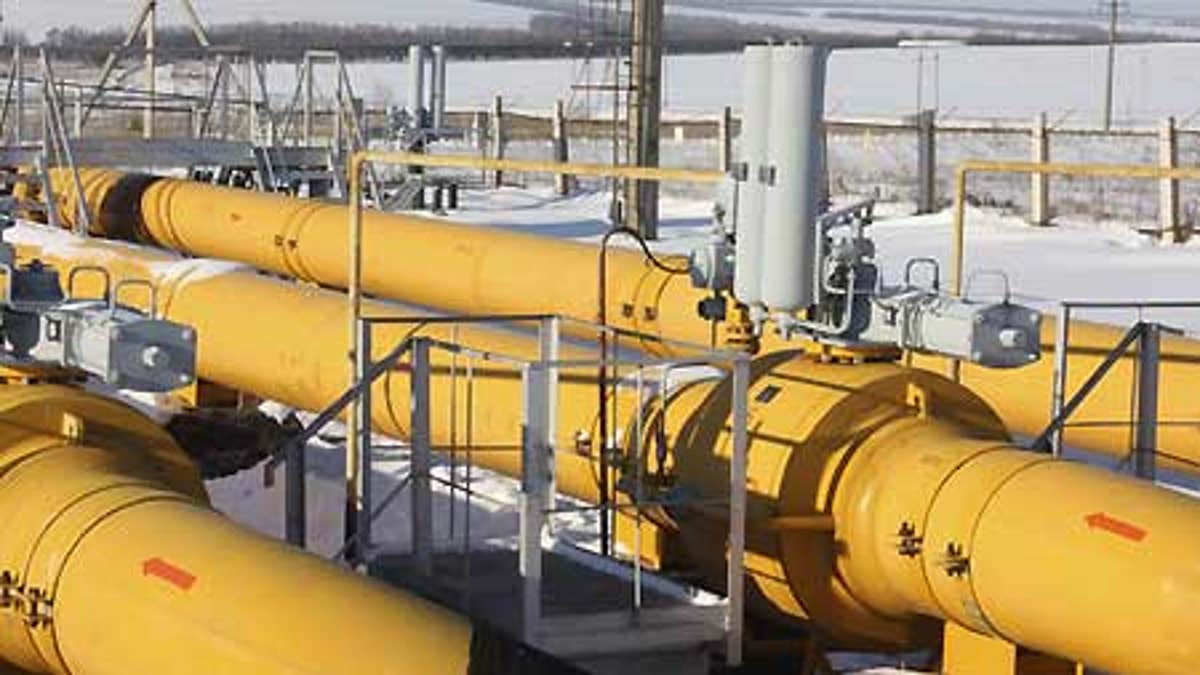
Jan. 13: The gas pumping station at Pisarevka, Russia. (AP)
MOSCOW – Prime Minister Vladimir Putin warned that Russia would cut natural gas to Ukraine if it wasn't paid by Saturday, a threat that revived worries about supply cuts to Europe.
Ukraine's national gas company told The Associated Press that payment would come by the end of Thursday. Russia's gas monopoly, Gazprom, said that Naftogaz has paid $310 million for gas it received in February, but owes another $50 million.
Ukraine's ability to pay has been undermined by a severe economic crisis. Clouding the situation, Ukraine's national security service searched the offices of the gas company, Naftogaz, on Wednesday in a raid seen as part of a political fight between the president and prime minister that could hinder payments to Russia.
Click to view photos.
Putin said on television that the raid "is a source of extreme concern."
About 20 percent of the gas consumed in Europe comes from Russia via pipelines that cross Ukraine. A dispute between the two countries over payments caused a two-week cutoff of Russian gas to much of Europe this winter before it was resolved.
The national security service is controlled by President Viktor Yushchenko. He is locked in a bitter struggle with Prime Minister Yulia Tymoshenko, whose government controls Naftogaz.
Ukrainian security agents showed up Thursday at the main office of a Naftogaz branch, Ukrtransgaz, as part of what officials have called an investigation into alleged diversion of huge amounts of Russian gas. Naftogaz employees sent the agents back, citing a court decision that they claimed halted the probe.
Tymoshenko and her allies deny that Naftogaz diverted Russian gas. They claim Yushchenko initiated the search in order to get a hand on the company's profits and hinder the company's dealings with Russia by confiscating vital documents
The wider political battle that has impeded an effective response to the financial crisis in Ukraine, one of the worst performing economies in Europe.
Industrial output slumped by over one-third in January, year-over-year, and the national currency lost about 43 percent of its value since September, as exports of steel and chemicals, the backbone of the economy, plunged on a fall of global demand.
